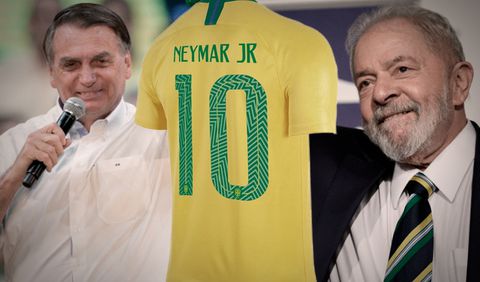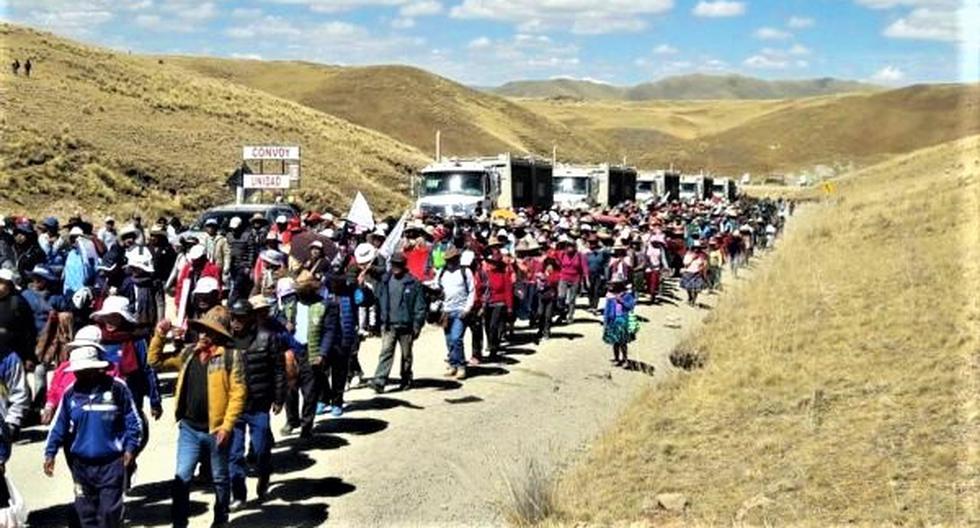Many buried him politically when he was jailed for corruption, but Lula, a stainless icon of Brazil’s left, is seeking a third term with the promise of returning to those days of progress when he lifted millions out of poverty.
Source: AFP
Luiz Inácio Lula da Silva, a self-defined “76-year-old man”, was resurrected like a ‘phoenix’ in politics after the annulment of his conviction by the Supreme Court, and this Sunday he faces his sixth presidential election, against the current president, the far-right Jair Bolsonaro.
And the polls show him as the winner, some even in the first round on Sunday.
“I want to prove that a metallurgist (…) is going to fix this country, and the people are going to eat three times a day again,” promised these days the ex-trade unionist raised from poverty at a rally in Sao Paulo. “We will do what we already did.”
Twice president between 2003 and 2010, Lula left power with a popularity of almost 90% after a management in which 30 million of the more than 200 million Brazilians were lifted out of poverty.
And he earned enormous international prestige as the pilot of the Brazilian economic “miracle”, pushed by the high prices of raw materials.
Although if he wins, he will not be able to count on the same bonanza: although the economy shows signs of improvement, with growth, less inflation and more employment, it is far from the prosperity of the 2000s.
– Origins –
A tiny mud hut, a replica of his family’s when he was born on October 27, 1945, recalls his humble origins in Brazil’s impoverished northeast.
The seventh son of an illiterate couple, Lula was abandoned by his father before the family emigrated, like millions of countrymen, to the industrialized metropolis of Sao Paulo.
He was a street vendor and shoeshine boy. At the age of 14, he began his training as a lathe operator, lost a little finger while manipulating a machine, and at the end of the 1970s, as leader of the metalworkers’ union, he led a historic strike that challenged the military dictatorship (1964-1985).
He contested the 1989 presidential elections, the first after democratization, and then in 1994, 1998 and 2002, when he was the winner and became the first Brazilian head of state from the working class.
“I would have liked to be a doctor, but I was lucky that you gave me the first diploma of my life, that of President of the Republic,” he launched at a rally.
And “I proved (…) that a mechanical lathe operator without a university degree was capable of doing more for the people than the doctors who had governed this country.”
– Corruption –
Lula crowned his double term by winning the venue for the 2014 World Cup and the Rio-2016 Games.
But his political career was marred by corruption scandals.
He was re-elected despite the “Mensalao” case, an illegal millionaire accounting set up by the Workers’ Party (PT) -which he co-founded in 1980- to buy the support of congressmen.
He also ended up involved in “Lava Jato”, the largest anti-corruption operation in the country’s history, focused on a gigantic network of bribes around the state-owned oil company Petrobras.
He was sentenced in 2017 to nine and a half years in prison for obtaining an apartment from a construction company in exchange for public contracts, although he always defended his innocence.
He spent 19 months in prison. In March 2021 he regained his political rights with the annulment of his sentence for procedural irregularities.
He lost a brother and a seven-year-old grandson while behind bars.
“I stayed calm, preparing myself as Mandela prepared for 27 years, as Ghandi prepared his whole life, to get out of prison without anger,” said the former president, defining himself as a “Lulinha peace and love” in Sao Paulo.
– Relay –
The father of five children and a cancer survivor, Lula married for the third time in March to sociologist Rosangela da Silva, “Janja.”
“I could live my life with ‘Janja’ and leave politics”, but “I have a cause, which is to raise the rights of the Brazilian people”.
Lula has monopolized the leadership of the Brazilian left. Of nine democratic elections, including Sunday’s, he will only have been absent from three.
“It drained the oxygen a little” of any possible generational change, Leonardo Paz, consultant for Brazil of the International Crisis Group, explained to AFP. “It didn’t give much room for young politicians on the left to grow up.”
In any case, he announced that he will not aspire to govern for eight years if he wins.
“Everyone knows that an 81-year-old citizen cannot want re-election,” he said this week. “Nature is unforgiving.”

















